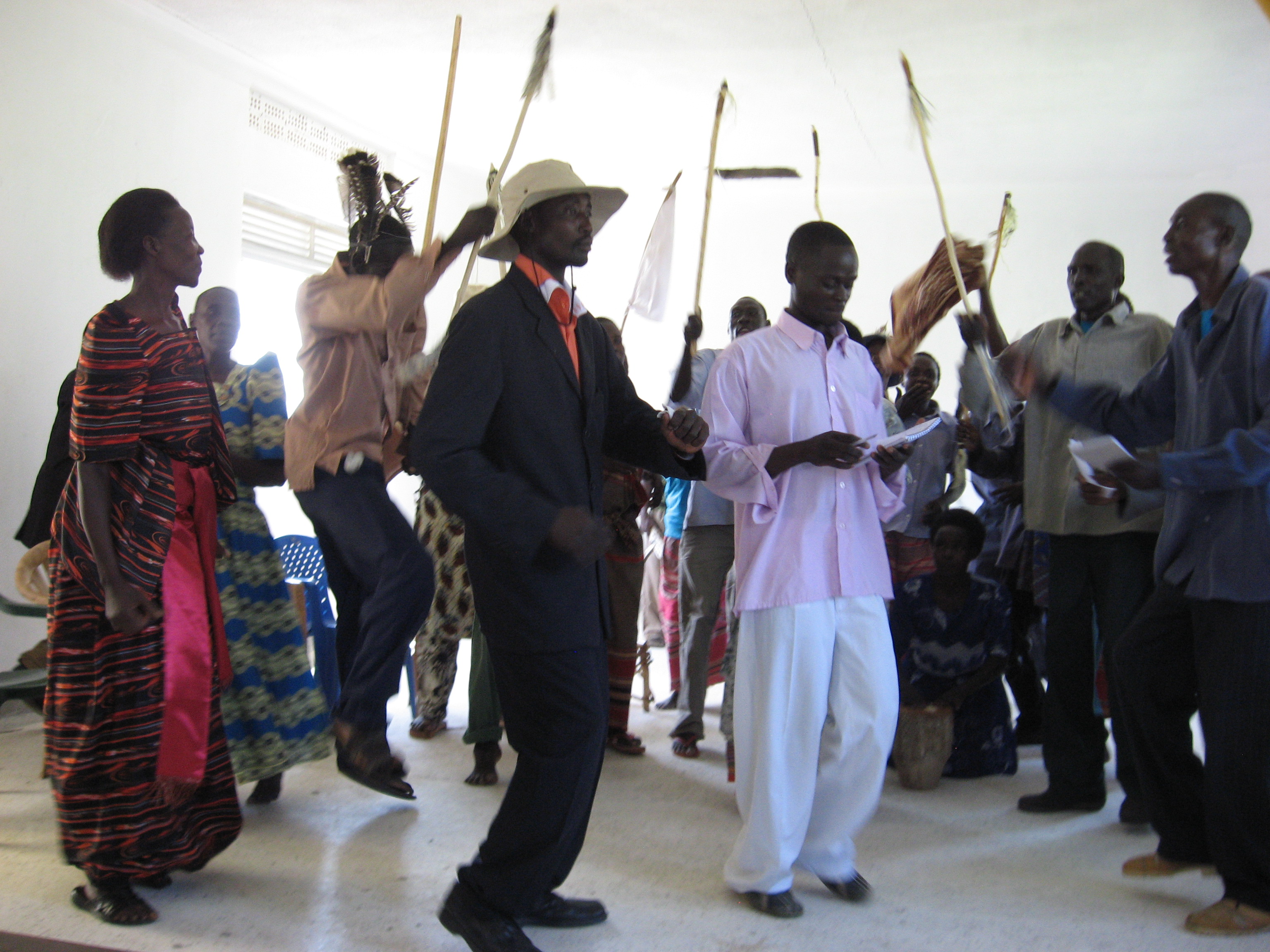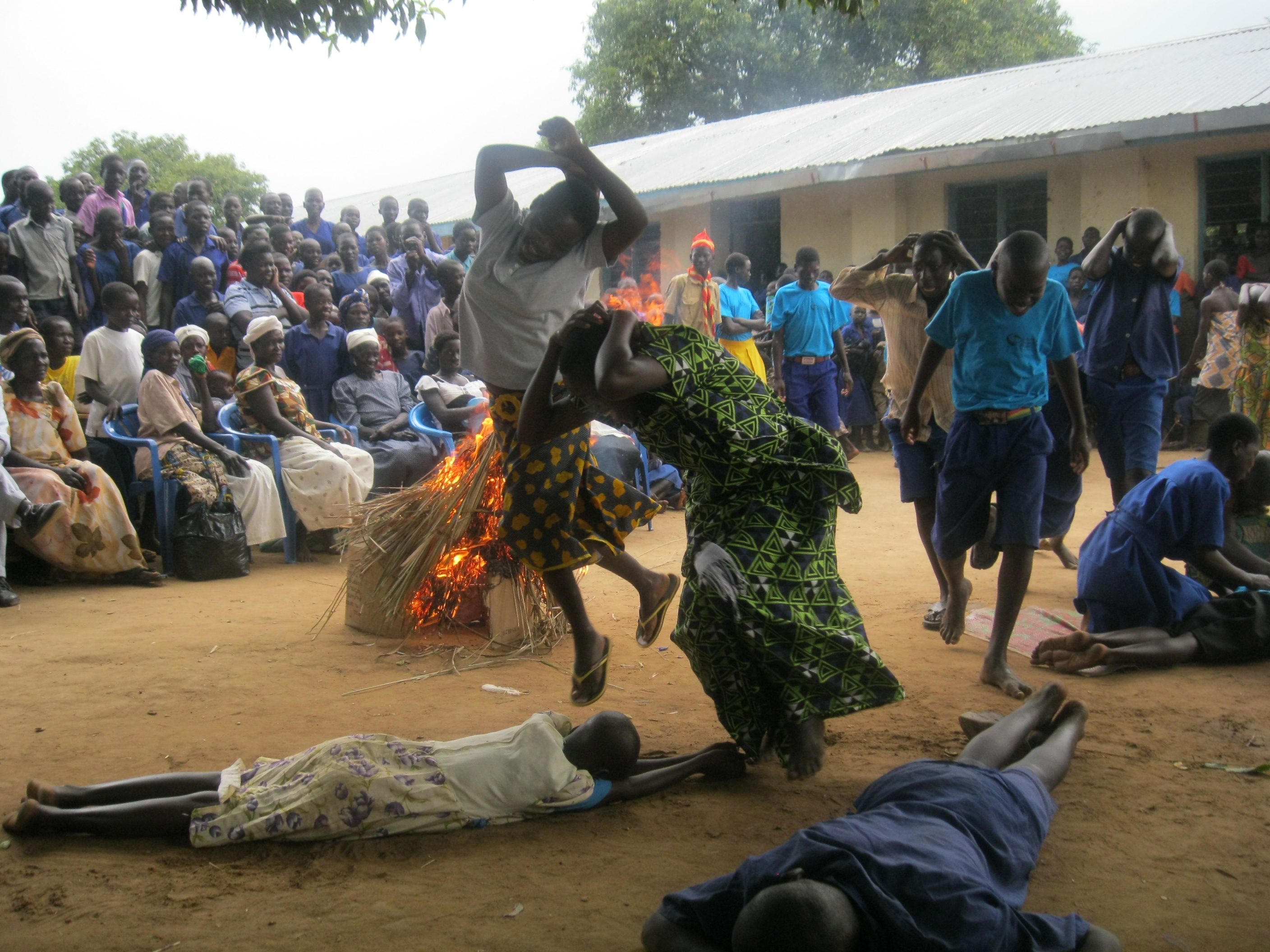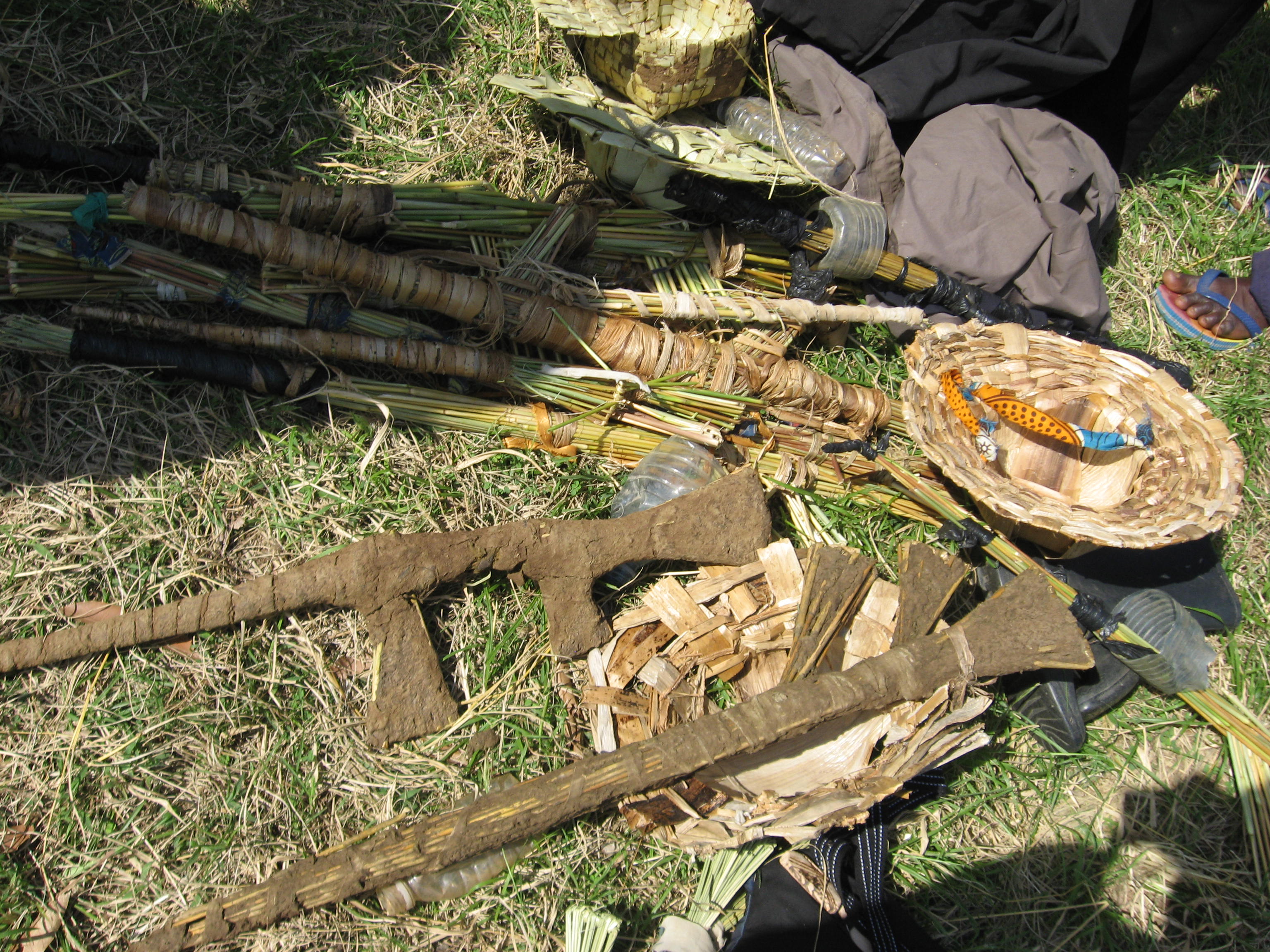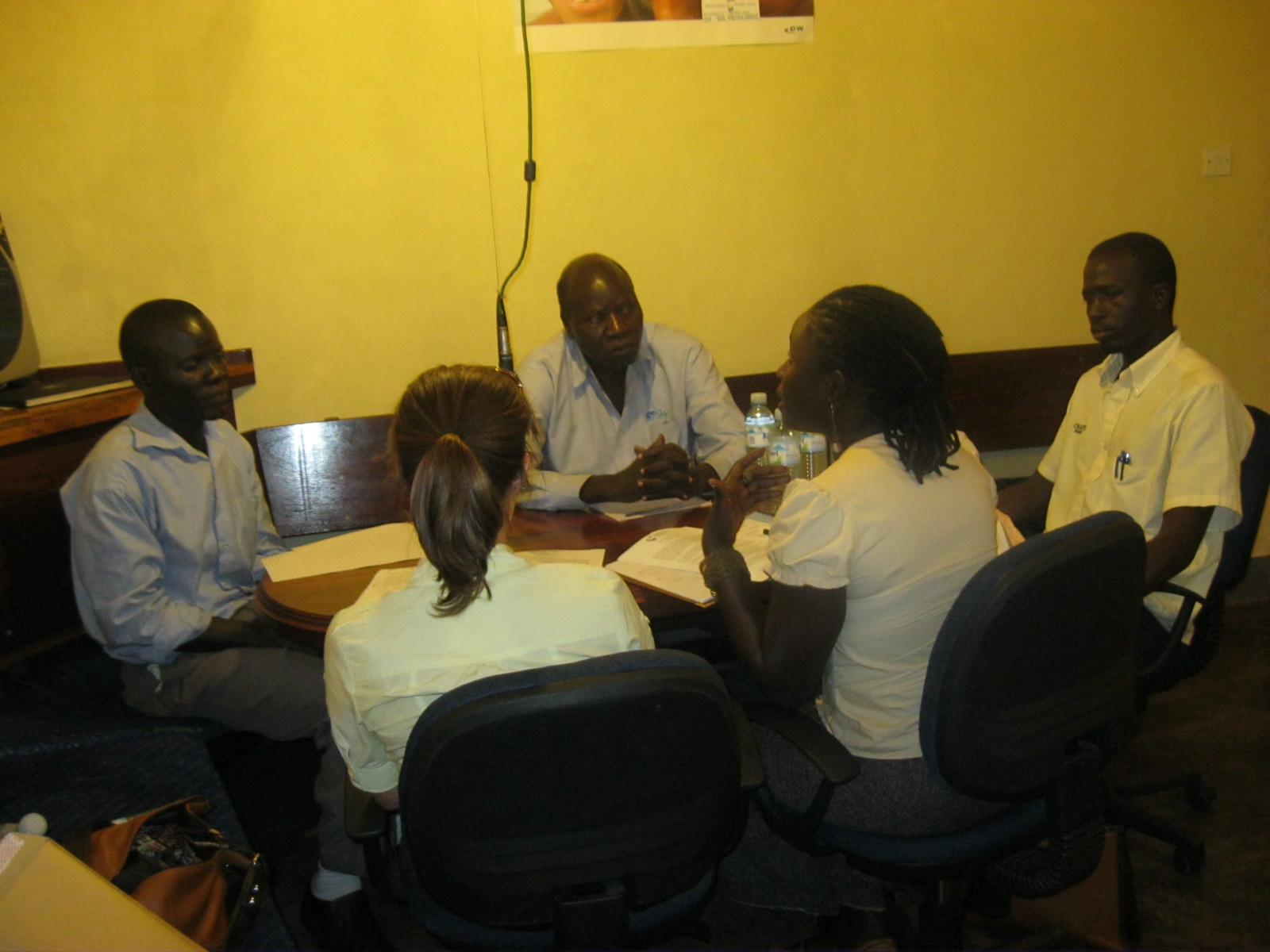“Analysis: Should child soldiers be prosecuted for their crimes?,” IRIN News, 6 Oct. 2011
http://www.irinnews.org/report.aspx?reportid=93900
JOHANNESBURG, 6 October 2011 (IRIN) – International human rights law meanders between the vague and the hazy when it comes to its stance on the age of criminal responsibility and what, if any, punishments should be imposed on child soldiers guilty of war crimes.
The godfather of human rights laws, the Geneva Conventions, oblige all member states to act on grave breaches of human rights, but does not stipulate the age of criminal responsibility.
Robert Young, deputy permanent observer and legal adviser to the International Committee of the Red Cross (ICRC) based in New York, told IRIN international humanitarian law (IHL) remains “silent” on the age of responsibility for perpetrators of grave human rights abuses, such as wilful killing, torture and inhumane treatment.
International Criminal Court (ICC) Article 26 prevents the court from prosecuting anyone under the age of 18, but not because it believes children should be exempt from prosecution for international crimes, “but rather that the decision on whether to prosecute should be left to States,” says the Office of the Special Representative of the Secretary-General (SRSG) for children and armed conflict (Working Paper Number 3: Children and Justice During and in the Aftermath of Armed Conflict, September 2011). “[The] exclusion of children from the ICC jurisdiction avoided an argument between States on the minimum age for international crimes,” it noted.
The age of criminal responsibility varies from country to country, from 7-16, but the bar is most commonly set at 14.
Although IHL does not set a minimum age for criminal responsibility for international crimes, it is argued that a yardstick has been laid down for some form of indemnity through IHL’s recognition that recruitment of child soldiers under 15 was a war crime.
The Children and Justice During and in the Aftermath of Armed Conflict report says: “If a child under the age of 15 is considered too young to fight, then he or she must also be considered too young to be held criminally responsible for serious violations of IHL while associated with armed forces or armed groups.”
“Children are often desired as recruits because they can be easily intimidated and indoctrinated. They lack the mental maturity and judgment to express consent or to fully understand the implications of their actions… and are pushed by their adult commanders into perpetrating atrocities,” the report said.
That children should be held accountable for their crimes during conflicts was acknowledged by the report, but “more effective and appropriate methods, other than detention and prosecution are encouraged, enabling children to come to terms with their past and the acts they committed.”
The report said child soldiers should not be prosecuted “simply for association with an armed group or for having participated in hostilities… There are instances where children are accused of crimes under national or international law and are prosecuted before a criminal court. Prosecution of a child should always be regarded as a measure of last resort and the purpose of any sentence should be to rehabilitate and reintegrate the child into society.”
Victims and perpetrators
The International Criminal Tribunal for the former Yugoslavia (ICTY) and International Criminal Tribunal for Rwanda (ICTR) did not cite a minimum age for criminal responsibility, but no one under 18 appeared before the tribunals. The Statute of the Special Court for Sierra Leone (SCSL) provided the court with jurisdiction over any person above 15, but the court’s prosecutor decided against indicting children for war crimes because of their dual status as both victims and perpetrators.
It may appear a grey area easily resolved by providing indemnity for crimes committed by child soldiers under the age of 15, but Radhika Coomaraswamy, SRSG for children and armed conflict, noted – in a 2010 article for the International Journal of Children’s Rights:The Optional Protocol to the Convention on the Rights of the Child on the Involvement of Children in Armed Conflict – Towards Universal Ratification – that such a provision could be perversely used.
“If minor children who have committed serious war crimes are not prosecuted, this could be an incentive for their commanders to delegate to them the dirtiest orders, aiming at impunity. For this reason the ICC and SCSL focus strongly on those persons most responsible for human rights and IHL violations and apply the concept of command responsibility to political and military leaders,” Coomaraswamy said.
Command responsibility does not necessarily remove individual culpability for serious human rights violations by lower ranks or subordinates, but “rather it traces liability back up the chain of command,” said legal adviser to the ICRC Young.
When child soldiers become adults
Dominic Ongwen was about 10 when he became a soldier with the Lord’s Resistance Army in the 1980s.
The ICC issued an arrest warrant for him in October 2005 for crimes against humanity, including enslavement of children. However, jurisdiction by the court does not extend to crimes committed by people under 18, and before 2002 when the Rome Statute entered into force. The crimes cited are for when Ongwen was an adult.
“Ongwen is the first known person to be charged with the same war crimes of which he is also a victim,” the Justice and Reconciliation Project, a Ugandan NGO concerned with transitional justice, said in a 2008 field note entitled Complicating Victims and Perpetrators in Uganda: On Dominic Ongwen.
“[Ongwen and other child soldiers] represent precisely the kind of complex political victims who, if excluded from justice pursuits, could give birth to the next generation of perpetrators in Uganda; generations marginalized by the judicial sector and who have nothing to gain from citizenship and nothing to lose from war,” the field note observed.
The Lubanga case
Tomaso Falchetta, Child Soldiers International (CSI) legal and policy adviser, told IRIN child soldiers should be viewed as victims and the NGO opposed their prosecution, as emphasis should be on the criminal responsibility of the adult recruiters. CSI “does not advocate for a cut-off point [for the prosecution of child soldiers], as it is a difficult issue.”
The first person to stand trial at the ICC for enlisting children under 15 was former Democratic Republic of Congo (DRC) warlord Thomas Lubanga. His trial at The Hague is nearing completion after he allegedly recruited underage children into the Patriotic Forces for the Liberation of the Congo (FPLC) during the conflict in Ituri, a district in the eastern DRC, between 2002 and 2003.
An international humanitarian law expert, who declined to be identified, told IRIN Lubanga’s case was “tremendously important” as “it will make others pause and think… Every rebel leader must be aware of this case.”
Falchetta said it was “difficult to provide an empirical judgement on that [Lubanga’s ICC prosecution being a deterrent]”, and rather that accountability needed to be enforced at the national state level to discourage the continued use of child soldiers.
The former DRC president, Laurent Kabila, said in 2000 the armed forces would demobilize all child soldiers but a year after he made the commitment, four DRC child soldiers aged 14-16 were granted clemency, after death sentences imposed by a military tribunal led to international condemnation from human rights organizations. A 14-year-old child soldier was reportedly executed the previous year.
Capital punishment for persons under 18 violates the International Covenant on Civil and Political Rights and the Convention on the Rights of the Child. The DRC is party to both international human rights treaties.
“The DRC laws may be there [the use of child soldiers is illegal], but when it comes to implementation, investigation and prosecution [of adult recruiters], we’ve seen little of that,” Falcetta said.
The CSI said in an April 2011 report (entitled Report to the Committee on the Rights of the Child in Advance of the DRC initial report on the Optional Protocol to the Convention on the Rights of the Child on the Involvement of Children in Armed Conflict) that “hundreds of children remain in the ranks of the national armed forces (Forces Armées de la Republique Démocratique du Congo) despite legal and policy obligations to release them and government pledges to do so.”
Laws of war
Matthew Happold of Hull University in the UK said in 2005 paper entitled The Age of Criminal Responsibility in International Criminal Law there were “good reasons” for regulating criminal responsibility of international crimes through international law as they were “often distinguished from crimes under national law because they transcend national boundaries and are of concern to the international community.”
He said, in the paper presented at the Hague Academic Coalition’s conference on international criminal responsibility, that from the perspective of a defendant, “it would seem wrong for an individual’s liability under international law to depend upon the place of prosecution…. States are obliged to prosecute and punish offenders. Permitting States to decide their own age of criminal responsibility would allow them to determine the scope of their international obligations.”
Child soldiers, like any other combatants are subjected to the Nuremburg principle that holds: “The fact that a person acted pursuant to order of his Government or of a superior does not relieve him from responsibility under international law, provided a moral choice was in fact possible to him.”
ICC’s Article 33 determines that acting on orders from superiors was not a defence of criminal responsibility but there are mitigating circumstances, and among them, is that a person may be relieved from prosecution if they did not know the order was unlawful.
However, the commission of “manifestly unlawful” crimes, such as genocide or crimes against humanity cannot be mitigated.
Young said the “so-called `defence of superior orders’… the [Nuremberg] principle that `I was just following orders’ can no longer relieve any of us of criminal (and moral) responsibility for unconscionable acts we commit at the behest of others.”
However, Rule 155 of Customary IHL, provided leeway, where “coercion and duress may provide exceptions… and one can quickly imagine how this principle might mitigate the responsibility of a child soldier who was forcibly recruited and forced, under threat of harm, to commit war crimes,” ICRC adviser Young said.





